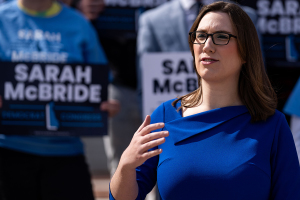Anglicans Propel Vision to Plant 1,000 Churches
Conservative Anglicans, who began their own church less than a year ago, are moving with greater momentum to answer the call of planting 1,000 churches.
Hundreds gathered in Plano, Texas, on Monday for the Anglican Church in North America's summit where they were told that they could be the leading church planting denomination in America if they succeed.
They could even break the logjam in North American Anglicanism, said Fr. David Roseberry, rector of Christ Church in Plano, according to VirtueOnline.org.
The vision for Anglican 1000 was cast by ACNA's archbishop, the Rt. Rev. Robert Duncan, last summer when some 700 parishes that cut ties with The Episcopal Church and the Anglican Church of Canada constituted the ACNA. Though there were existing Anglican provinces in the United States and Canada, the breakaway parishes established their own North American province as they sought to establish a traditionally Anglican and biblically-centered body (that would still be tied to the worldwide Anglican Communion).
The Church of England has given, to a certain extent, formal recognition to the new province. Earlier this month, delegates in London approved a resolution that acknowledges the distress caused by recent divisions in churches in the U.S. and that further affirms "the desire of those who have formed the Anglican Church in North America to remain within the Anglican family." Wanting to explore the matter further, the Church of England rejected a motion to declare full communion with the new province.
While the ACNA continues to try to gain recognition from the rest of the global body, the conservative group has placed much of its focus on the ambitious vision to reach more people in North America with the Good News.
"In the next five years, I want us to plant 1,000 new churches," Duncan said last summer when he was installed as the first archbishop of the ACNA. "We can do that."
On Monday, the archbishop reported that there are now more than 800 churches in the ACNA and a movement like Anglican 1000 could change the world.
"If we are accountable to the Word, tradition and the Holy Spirit and if we are accountable for the transformation of society we will have 1,000 churches in five years," said Duncan, as reported by VirtueOnline.org.
Coming out of years of internal conflict over scriptural authority and homosexuality, those in the ACNA acknowledge that they may not be the likely candidate to serve as the "birth place of a missionary church planting movement of God."
But Ron McCrary, executive director of Anglican Initiative for Mission Church Planting, stated, "God tends to use the 'least of the tribes' to accomplish His assignments that are beyond our human capacity. When a great movement of God breaks out, no human being can take credit, but only point to God and marvel out His power and goodness."
Missiologist Ed Stetzer on Monday offered the group some church planting advice as they aim to remap the future for Anglicanism in North America.
Church planting, he stressed, is not the goal but the tool, as reported by VirtueOnline.org. The goal is the glory of God and the redemption of people.
Addressing a largely traditional crowd, he noted that they don't have to be cutting edge, but they do have to tell people about Jesus.
On a more practical level, he advised the predominantly white group to plant non-Anglo churches and not to plant near any of their existing churches.
Currently, the ACNA is training planters and releasing teams into neighborhoods, apartment complexes and other areas to spread the Gospel. The ACNA stresses that church planting is no longer "for the elite superstars of the clerical ranks." Rather, it is a work of the body of Christ.
Anglican 1000 concludes Tuesday.




























